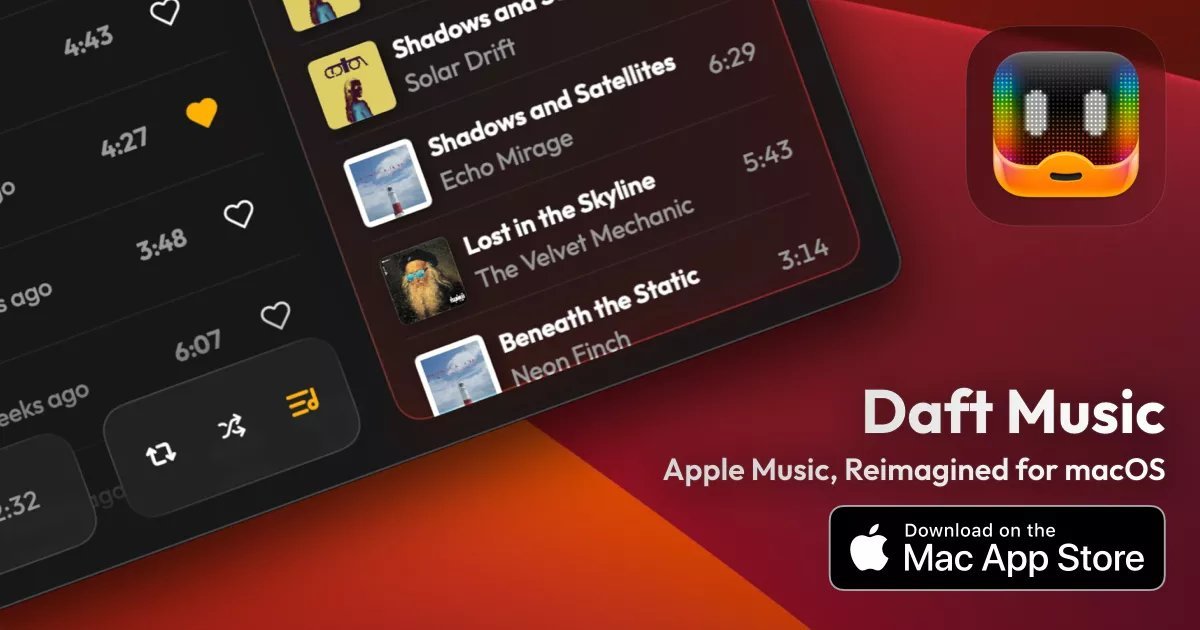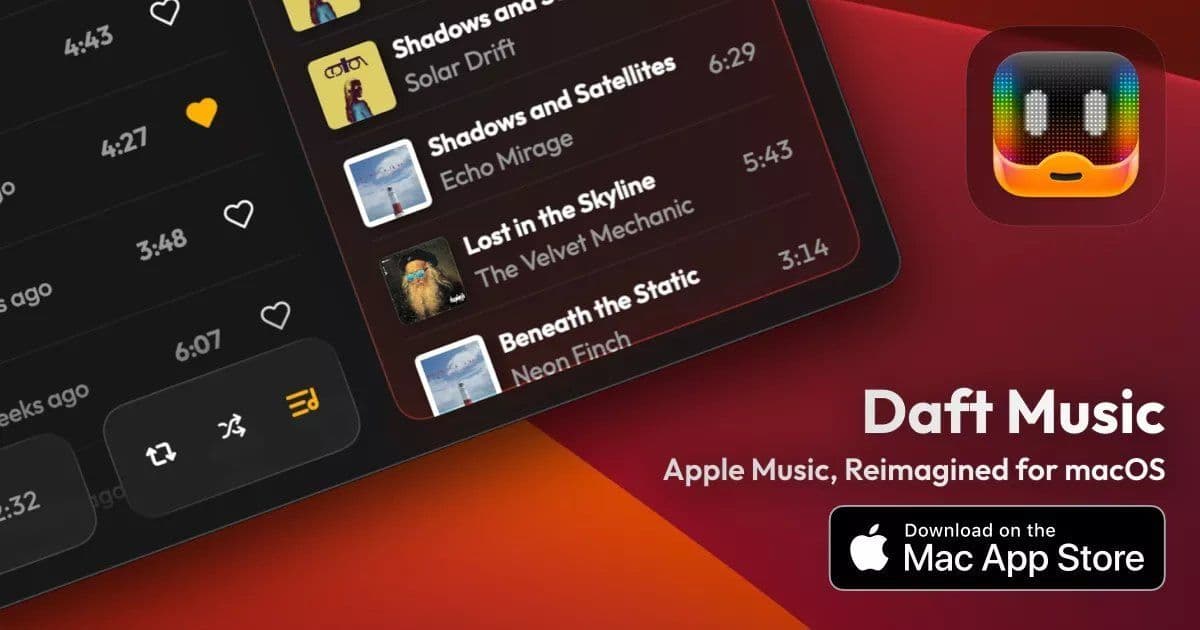A new third-party macOS application called Daft Music promises a faster, more elegant Apple Music experience built natively for the platform. By prioritizing macOS design principles and performance, it challenges the status quo of web-wrapper apps in music streaming.
Daft Music Reimagines Apple Music with Native macOS Elegance
For years, macOS users have navigated a landscape dominated by cross-platform Electron apps and web wrappers when accessing streaming services like Apple Music. Daft Music, a newly launched third-party client, aims to disrupt this paradigm with a radically different approach: a fully native macOS application designed from the ground up for Apple's ecosystem.

Unlike conventional solutions that often sacrifice performance for universality, Daft Music leverages native macOS frameworks to deliver what it calls "lightning-fast playback and buttery smooth navigation." This focus on optimization addresses common pain points like laggy library browsing and delayed track switching that plague non-native implementations. The app provides full access to users' Apple Music libraries, playlists, and favorites within a minimalist interface that adheres closely to macOS design language – complete with fluid animations and contextual menus that feel inherently at home on the platform.
The Native Advantage
Building natively for macOS (likely using Swift and AppKit/SwiftUI) unlocks significant benefits:
- Resource Efficiency: Reduced memory/cpu overhead compared to web-based solutions
- System Integration: Deeper hooks into macOS features like Media Keys, Touch Bar, and accessibility tools
- Performance: Instant search responses and seamless scrolling through large libraries
This approach highlights a growing developer sentiment that platform-specific optimization trumps one-size-fits-all solutions for premium experiences. As one macOS engineer noted: "When you bypass the browser layer and speak directly to the OS, you reclaim control over every pixel and processor cycle."
Implications for Developers
Daft Music's existence underscores several key trends:
- Niche Optimization: Demand for specialized apps that cater to platform conventions
- API Opportunities: Clever utilization of Apple's MusicKit or reverse-engineered protocols
- Performance as UX: How raw speed transforms subjective user satisfaction
The app also raises questions about sustainability – third-party clients often face challenges when service providers change APIs or enforce access restrictions. Nevertheless, its launch signals that developers see value in rebuilding established services with platform-specific craftsmanship.
For music enthusiasts tired of compromise, Daft Music offers a compelling proposition: Apple Music, unshackled from cross-platform constraints and reimagined through the lens of macOS purity. Its success may inspire more developers to embrace native-first philosophies in an increasingly homogenized app landscape.

Comments
Please log in or register to join the discussion